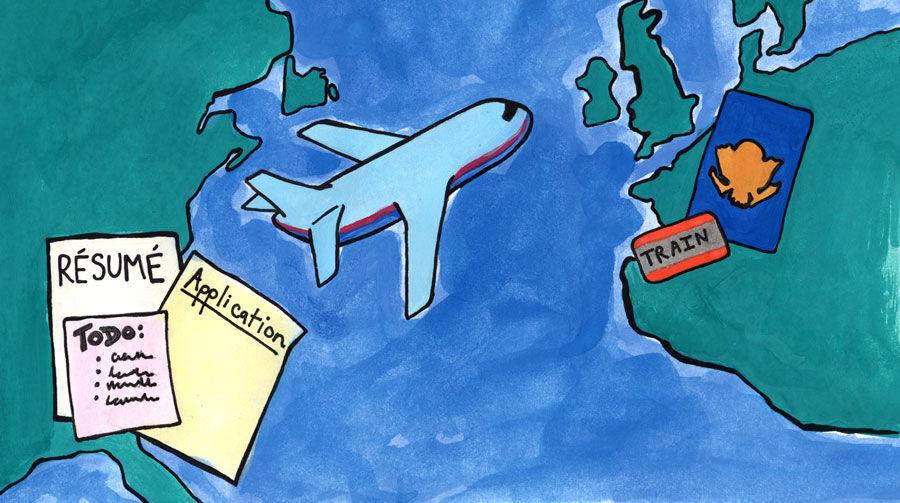When the pilot announced that we were finally descending into Manchester, my stomach did flips.
I was well on my way to beginning my study abroad experience in England, something I had looked forward to my whole sophomore year. The summer was spent planning, dutifully mapping out my time in the land of One Direction and free health care. It would be filled with travel, hard work, an internship and time utilized productively, which seemed like the best way to make the most of the experience.
It’s safe to say the plans didn’t work out.
My year at Lancaster University, located in the idyllic northern region of England, was chaos.
During the first week on campus, I got to know my 11 flat mates, most of whom were English. They introduced me to the British way of doing things, which seemed a lot different from what was standard at home. They didn’t seem to have plans. They had aspirations and dreams, sure, but they weren’t particularly bothered about resumes or getting involved in anything and everything. They just wanted to enjoy their time at university.
Where were the dozens of applications? The interviews? The constant meetings? The only sleep deprivation they seemed to experience was due to late nights at the pub, not from staying up until 3 a.m. to finish homework that couldn’t be done because of days full of classes, organization meetings and dozens of other commitments.
It was a huge culture shock. After all, my life at A&M was full of busyness and productivity. I had joined the clubs, done the internships and worried constantly about being well rounded. I even thought of studying abroad as contributing to the glamor of my resume. It was what everyone did, what everyone felt like they were expected to do.
This trend of a more relaxed state of being seemed to apply to most European countries I visited. In France, no one seemed to have their phones out at dinner and the servers would give guests time to dine longer. People actually spent hours talking over their meals, not worrying about emails or getting the check right away. In Italy, various museums and stores would often take days off during the week and close early. In most of Western Europe, people vacation more because they have more paid time off (an average of two months in some countries).
Why do Americans seem so much busier? When you go to a restaurant here, phones are always out and checks come promptly, stores are open much later and people rarely seem to take a break. Life in America appears so fast-paced, with people obsessing over efficiency and productivity.
The longer I was in Europe, the more apparent this became. I joined two societies during my time at the university, one of which planned trips to various parts of the United Kingdom. The other ran student media. The internship didn’t happen and there weren’t meetings to go to every day. The stress and anxiety lessened.
My days in England were spent putting on barbecues with friends and flat mates, writing because I enjoyed it, actually getting involved in elective classes instead of seeing them as a burden and traveling the student way, unorganized, running from Megabus to Megabus. It was like taking a deep, relaxing breath, and I was truly enjoying every moment of my time in school.
There were challenges, sure, and a few all-nighters, as procrastination has always been my worst enemy, but my experience studying abroad finally allowed me to take a step back and think about how busy and anxious I had been the last two years of my college experience.
It finally made sense why older men and women said, “Enjoy it, college will be the best time of your life.”
Graphic by Regan Brunsvold
When in America, do as the Europeans do
September 23, 2014
0
Donate to The Battalion
$1865
$5000
Contributed
Our Goal
Your donation will support the student journalists of Texas A&M University - College Station. Your contribution will allow us to purchase equipment and cover our annual website hosting costs, in addition to paying freelance staffers for their work, travel costs for coverage and more!










